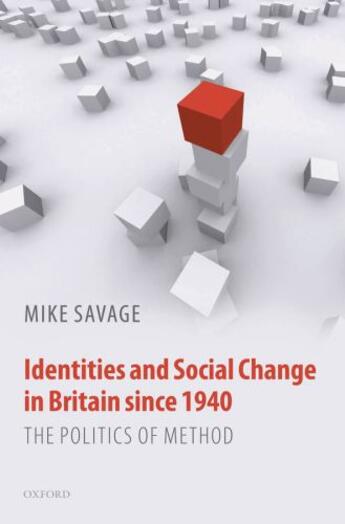-
Nombre de pages : (-)
-
Collection :
(-)
-
Genre :
(-)
-
Thème :
Non attribué
-
Prix littéraire(s) :
(-)
Résumé:
Identities and Social Change in Britain since 1940 examines how, between 1940 and 1970 British society was marked by the imprint of the academic social sciences in profound ways which have an enduring legacy on how we see ourselves. It focuses on how interview methods and sample surveys... Voir plus
Identities and Social Change in Britain since 1940 examines how, between 1940 and 1970 British society was marked by the imprint of the academic social sciences in profound ways which have an enduring legacy on how we see ourselves. It focuses on how interview methods and sample surveys eclipsed literature and the community study as a means of understanding ordinary life. The book shows that these methods were part of a wider remaking of British national identity in the aftermath of decolonisation in which measures of the rational, managed nation eclipsed literary and romantic ones. It also links the emergence of social science methods to the strengthening of technocratic and scientific identities amongst the educated middle classes, and to the rise in masculine authority which challenged feminine expertise.
This book is the first to draw extensively on archived qualitative social science data from the 1930s to the 1960s, which it uses to offer a unique, personal and challenging account of post war social change in Britain. It also uses this data to conduct a new kind of historical sociology of the social sciences, one that emphasises the discontinuities in knowledge forms and which stresses how disciplines and institutions competed with each other for reputation. Its emphasis on how social scientific forms of knowing eclipsed those from the arts and humanities during this period offers a radical re-thinking of the role of expertise today which will provoke social scientists, scholars in the humanities, and the general reader alike.
Donner votre avis















